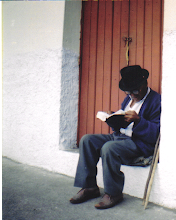The angels had good reason to sing that first Christmas night. In a vision explaining his father’s dream of the tree of life, Nephi saw the “most beautiful and fair [of] all virgins” holding the Son of God. (1 Nephi 11:15-22.) Instantly, Nephi recognized that the tree of life symbolized Christ and knew that the baby born in Bethlehem was the embodiment of God’s love for His children. “For God so loved the world, that he gave his only begotten Son, that whosoever believeth in him should not perish, but have everlasting life.” (John 3:16.)
And God’s love abounded as Jesus walked among men. As Jesus healed and served, He testified that He merely did the works of the Father. (John 14:10.) That is, if Heavenly Father had been in Roman-occupied Jerusalem, He would have healed the sick, raised the dead, caused the blind to see, and lifted the sinner. For it was “God’s love [Jesus was] showing [us].” (Jeffery R. Holland, “The Grandeur of God,” Ensign, Nov. 2003, 72.) The same sorrow which filled Jesus as He lamented over Jerusalem filled Heavenly Father, as did the same compassion which Jesus showed to sinners, even to a woman caught in adultery. How can we imagine a stern and unforgiving God when He refused to condemn one guilty of the heinous sin of adultery? (See John 8:1-11.) True, God cannot “look upon sin with the least degree of tolerance,” and “no unclean thing can dwell in the presence of God.” But He wants us to repent of our sins, and when we do, immediately, He will extend the blessings of the plan of redemption to us until “He takes us on His shoulders and casts our sins behind His back.” (Alma 34:31; Holland, The Grandeur of God, 73.)
Thus the greatest manifestation of God’s love for us was the offering of His Son as the “great and last sacrifice” for sin. (Alma 34:10,13-14.) None of us compared to Christ premortally. The prophet Joseph Smith taught that many years will pass after our deaths and resurrection before any of us attain perfection. (Teachings of the Prophet Joseph Smith, sel. Joseph Fielding Smith [1976], 348.) Yet Jesus continued “from grace to grace” (D&C 93:14) until He attained Godhood many billions of years ago, enabling Him to create all things. (Moses 1:32-33.) Despite His premortal perfection, Jesus yielded Himself as a willing sacrifice to the will of the Father. No one deserved greater praise, glory, and honor. Yet no one suffered more. (D&C 19:15-18.) Still, to glorify the Father and to exalt us, Jesus “descended below all things.” (D&C 122:8).
Yes, the angels sang that first Christmas night because over Christ’s manger bed loomed the shadows of Gethsemane’s trees and of Golgotha’s cross. And the silence of that night portended the silence of the empty Garden Tomb.
“Glory to God in the highest, and on earth peace, good will toward men.”(Luke 2:14.)

No comments:
Post a Comment